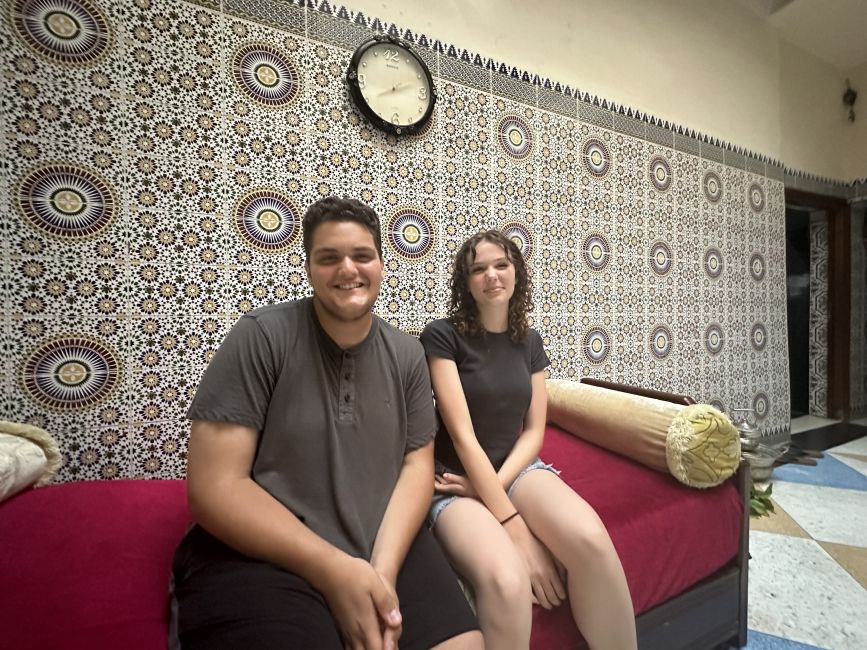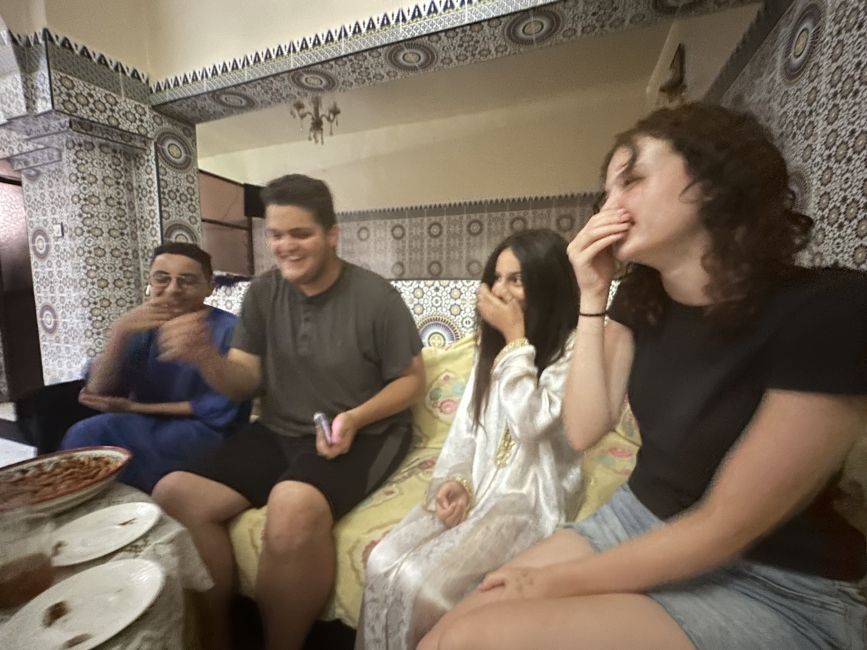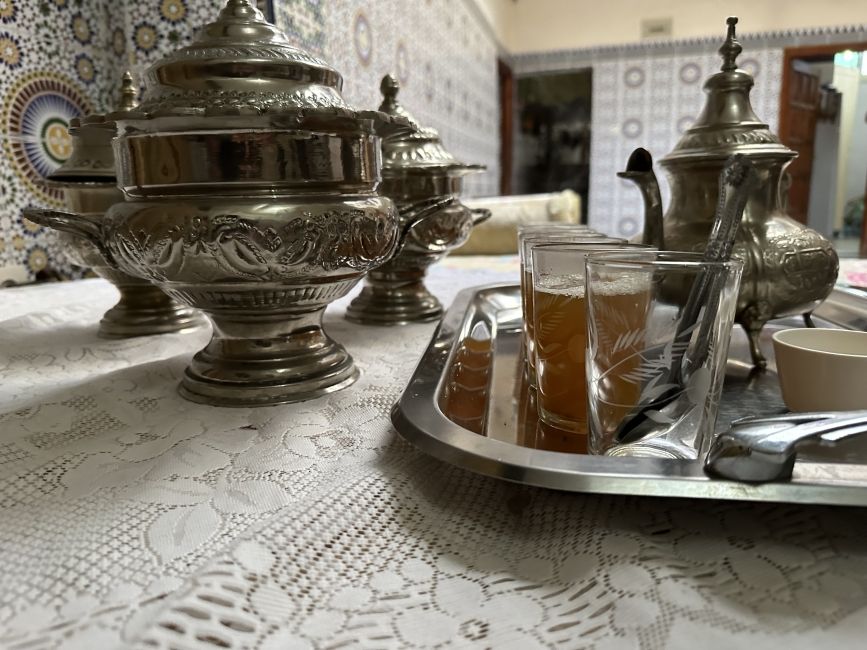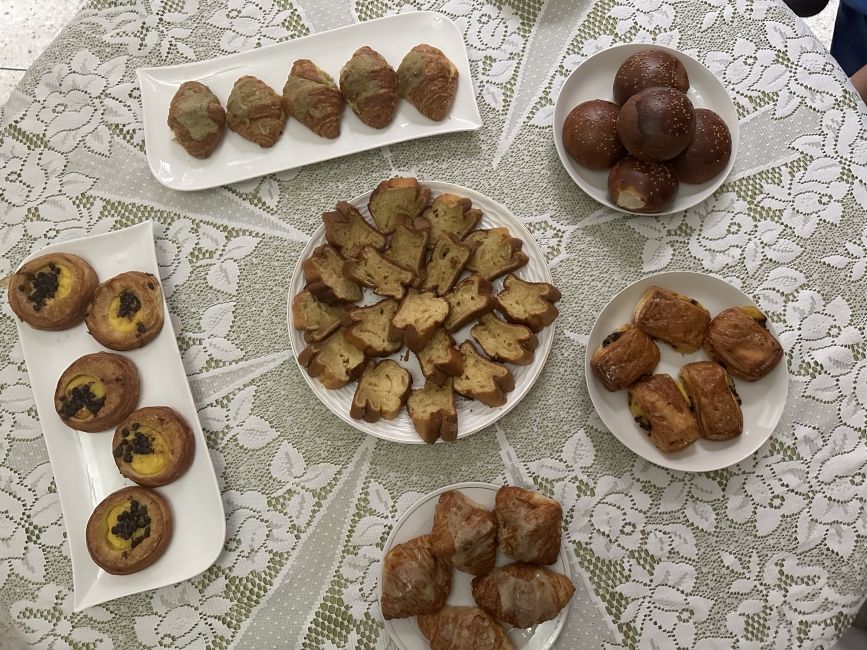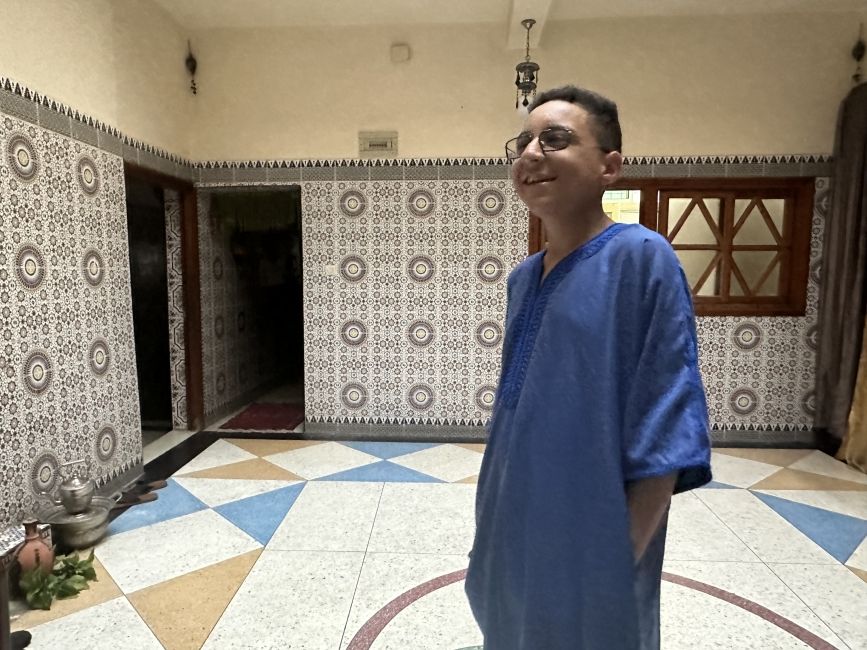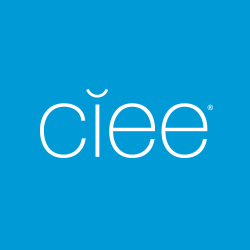What's It Like to Do High School Summer Abroad in Morocco?
Christine C., 16, and Mohamad H., 17, flew across the Atlantic this past summer to improve their Arabic language skills in the capital of Morocco.
CIEE Global Navigator U.S.-based team member Shalenah I. traveled to Rabat as a chaperone and joined Christine and Mohamad at one of their homes.
One of their host moms prepared Moroccan mint tea and homemade baked goods, and together they chatted about the Arabic Language & Culture high school summer program experience.
CIEE: How would you describe your Arabic Language & Culture program to a friend?
Christine: It’s definitely a rush and it goes by so quickly. You learn a lot every day and the teachers are so nice. I'm in a different class from Mohamad, but both of our teachers are super interactive, and the class sizes are small so you get a lot of one-on-one time. It’s really easy to learn in a small classroom setting. And they have us going on trips during the weekend and small trips after class. It’s really fun.
Mohamad: I would also describe it the same way. In one word, I'd say "eventful." The program is extremely packed. You don’t really get a lot of time when you are just sitting alone, which is really good because this whole program is an immersive program where you’re supposed to immerse yourself into a different culture. CIEE really does that. They take you to Tangier, Marrakesh, Casablanca, literally everywhere. So, you’re always going to see new places.
CIEE: Mohamad, as someone who is already fluent in Arabic, how has this program been for you?
(Mohamad is Syrian American)
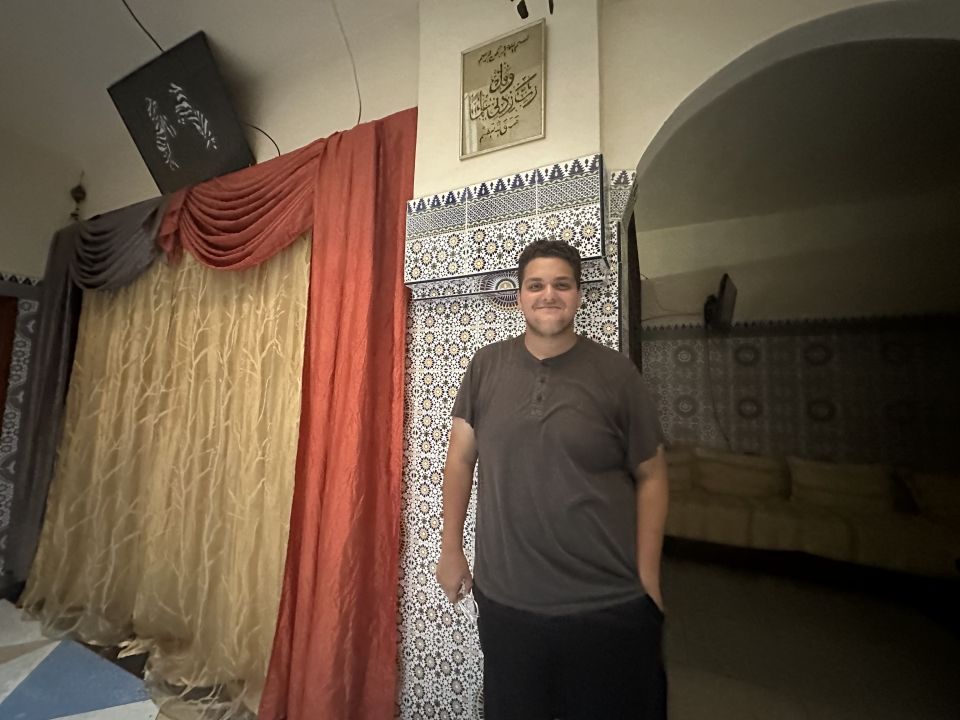
Mohamad: I think a common misconception is that it's going to be so easy for you, and it really isn't like that. Even though my Arabic is very similar, it also has its disadvantages too. Since my Arabic is closer to Modern Standard Arabic than it is to the Moroccan dialect, it’s been a challenge to understand people. But it also gives me an advantage when I’m bargaining in the markets. It’s so cool to learn and see the vendors, especially if they understand my dialect. They’ll say, “Oh my god, you’re Syrian.” I always try to use Darija when when I’m talking to people, but it’s so natural for me to switch off.
CIEE: Christine, when you first came to your homestay and realized this is where you were going to be living for four weeks, how did you feel?
Christine: I just remember really wanting to get into my room and set up and fall asleep. But I walked in and it was so beautiful! It had art on the walls, and it was really open, and in the middle, there was a huge skylight and the living room area was so beautiful. There was lace everywhere and I was just like, “Oh, this is my house for the next month?” [laughing]. I’m not used to it. You can really see the culture, in all the art, on the floor, on the walls and tiles and everything.
CIEE: What are three words you would use to describe this location?
Christine: For the old city, chill, no rush. When you’re buying something, they want to have a conversation with you. They don’t want it to be just like “store clerk and customer.” They ask your name, how you are, what family you’re staying with. It’s very cultural. Everything and everywhere you look, it’s the same way it’s been for hundreds of years.
Mohamad: I think another word would also be, very friendly. They’re always so nice. They’re so willing to help, especially in the markets and the old city.
Christine: Very loving, that’s my last word. In my homestay, as soon as I walked in, my host mom was calling me her daughter and saying “I’m your mom.”
Mohamad: Also, very welcoming.
CIEE: What is your favorite and most interesting food that you’ve tried?
Mohamad: Seffa. It was something I had the first week I came. It was really good. It was some noodles with some sort of meat.
Christine: Eid was last week which is a really big holiday here. So, we had two days of class off. You cook lamb with your family, and you eat together. It’s a four-day long celebration. I had so much good food!
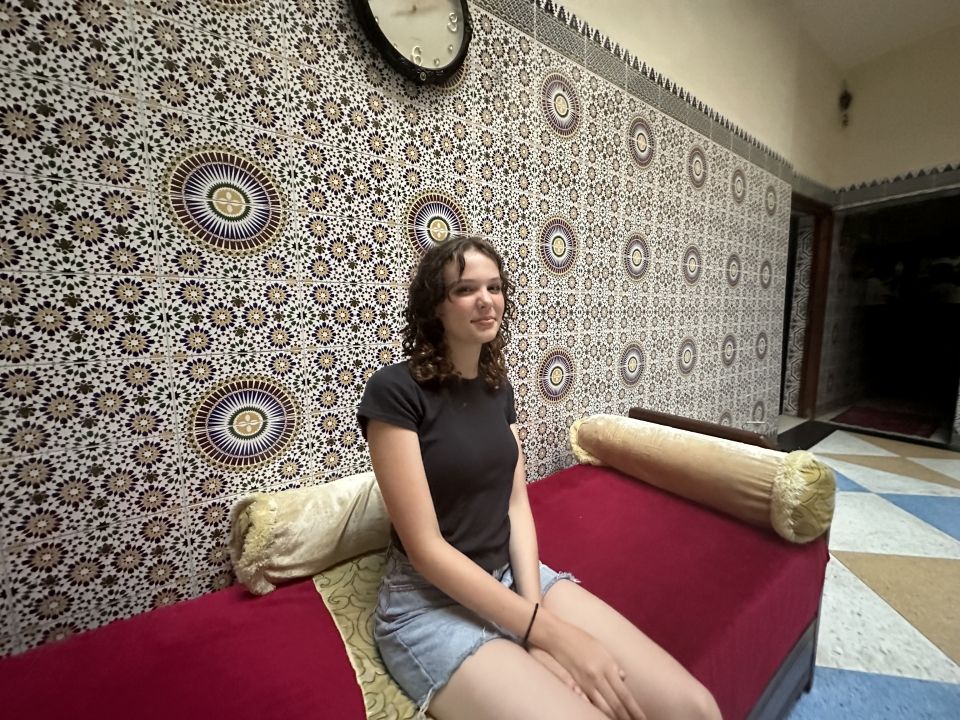
CIEE: What was it like being able to celebrate such an important holiday in Morocco?
Christine: It was very welcoming. They wanted us to be very apart of it. They didn’t push me to the side. They made sure I was involved. They gave me traditional clothes to wear.
Mohamad: I usually celebrate Eid at home, but we usually just go to the market and buy the cow. It was really nice to see the other side of things. I just like the traditions and the culture, and the values are very different.
CIEE: What’s something you think you will take with you, something that’s going to stay with you forever after doing high school summer abroad in Rabat?
Christine: Most definitely the language, the breakfast foods, the way people eat. You’re only supposed to eat with the right hand and clean with your left hand. I’m definitely taking that back. Small things my host mom has taught me, such as how you cut fruit. The breakfast foods are really easy to make here. I normally don’t eat breakfast in the U.S. because it takes a long time. But I’m definitely going to start eating breakfast now.
Mohamad: Also, the language, even though I’m fluent, I’ve learned a lot of the Moroccan dialect. I feel like I’ll be able to communicate with Moroccans back home. I think also I have more of an international mindset and understand how things work more internationally. I was never interested in history at all, but our guides on our program would always talk to us about history and it's gotten me so interested. Now I see why certain people can’t walk into certain mosques or certain buildings, and it's just really cool.
CIEE: What is the best piece of advice you’d give to someone who wants to do this program or who wants to study abroad?
Christine: Don’t be nervous, especially if you have Arabic experience like I did. I studied Arabic before, and my standard Arabic is pretty good. I can hold a very steady and detailed conversation. I can talk about my needs and understand. I was really nervous coming in that people weren’t going to understand me. But people do. Also in Rabat, only bring cash. You won’t need your card!
Mohamad: From my personal experience, I really didn’t talk to anyone [in my cohort] at first, and I kind of regret that. Even during our group flight, I was kind of sitting alone and stuff and I really, really regret that because [for many students], that’s where they started their friendship, at the airport. I didn’t really talk to anyone until the beginning of the second week.
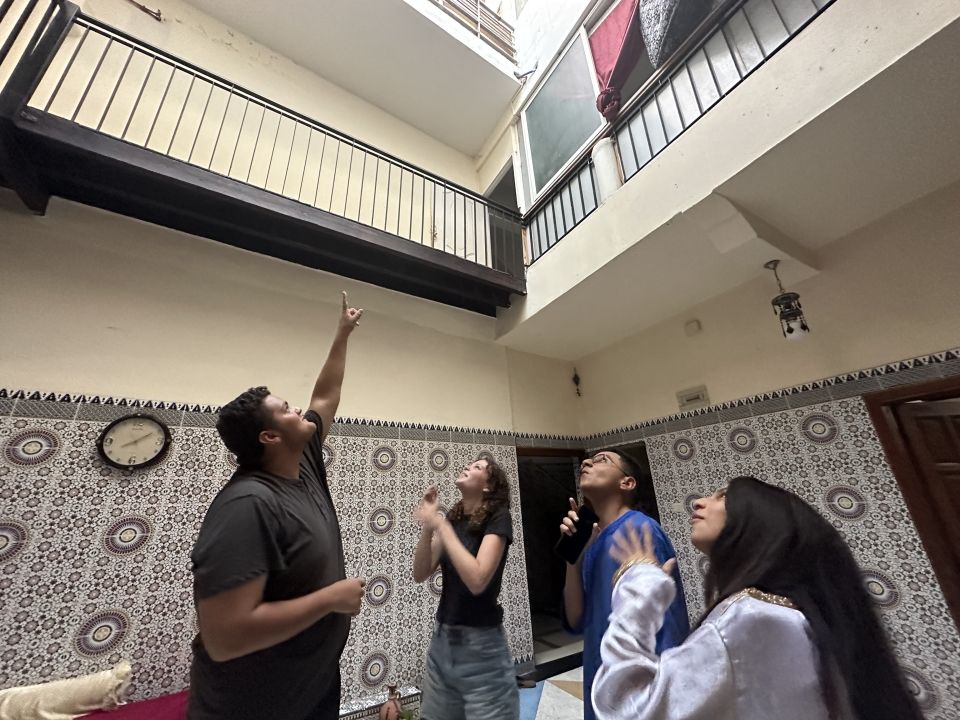
CIEE: What skills do you think you’ll gain from this program that will help you in your future?
Christine: Learning to be comfortable with being uncomfortable. So, before lunch every day after school, they send us out in groups and usually whatever you learned right after class, we’ll have a list of questions that you’ll have to go and have a conversation with the locals of Agdal, not in Rabat because our school is 15 minutes away. So, you have to go up to a random person, or a shop owner and have a conversation with them. As an American, that’s not something that your normally do. In Agdal, people know that there are [international] high school students who are studying abroad. So, they love to share their culture and their language. They love when students are learning their language. They feel that their culture is living on.
Mohamad: One skill is definitely the language. That’s such a big skill. I’m able to communicate with so many more people. My Arabic in general has just gotten more advanced. I’m really grateful for that. Another skill would be being more social. Not only in Arabic but in English, I’m able to be more friendly and be able to just have a regular conversation with people.
CIEE: What will you miss most about your homestay?
Mohamad: I’m going to miss my host siblings. I taught them a Syrian card game, and we always play it together. I’m going to miss always seeing them in the morning, especially during breakfast. Breakfast in the morning is really good. I’m going to miss that! I’m also going to miss going to school myself. It really gives you a big sense of independence when you go in a taxi by yourself in a foreign country.
Christine: I don’t have any sisters. I only have brothers in Chicago. So my homestay’s grandmother’s granddaughter is kind of like my sister. She comes over a lot, and so I’m definitely going to miss her. I will also miss having my independence, and I'll miss the locals so much because I made some new friends with the locals near my house. There are always kids playing soccer in front of my house. They just come in for a cup of tea. They’ll just walk in!
CIEE: Like a community.
Christine: Yes, everybody knows each other, especially with my host mom being a grandmother. She’s a grandmother to the community. She’s a grandmother to everybody. So since everybody knows her, everybody knows me!
CIEE: Any closing thoughts?
Christine: If you have the opportunity to do something like this, definitely do it. And while you’re here, definitely, take advantage. Don’t sit in your room. If it’s an optional field trip, go on it. Take the opportunity. You came all this way. You’re here!
Mohamad: Yes, take advantage. Opportunities don’t come all the time, so always take advantage of what’s in front of you.
All CIEE Global Navigator Language & Culture programs include a homestay to fully immerse high school students in their new community. Programs run for four weeks between June and July. Applications are due in January.
Related Posts
Weekend in Marrakesh
Our Weekend in Marrakesh - This blog was written by one of our students - Nyx Lange Reflecting on our past weekend excursion to Marrakesh from our Moroccan base of... keep reading
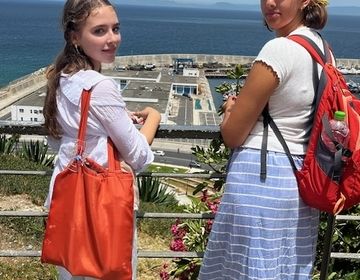
Exploring Tangier: A Day in Morocco's Gateway to Africa
This past weekend, our group ventured to the north of Morocco to the vibrant city of Tangier where the Mediterranean Sea meets the Atlantic Ocean First, we met our guide... keep reading
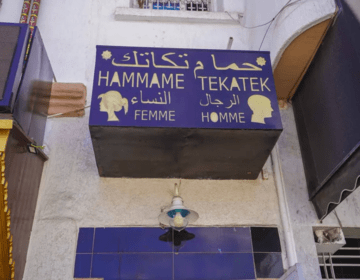
Bssaha wa Raha L'hammam🚰🪣🧼 بالصحة و الراحة الحمام
By Program Leader, Mohsin: Hey everyone! As your Moroccan program leader, I’m thrilled to introduce you to one of our country’s most cherished traditions: the hammam. If you’ve never heard... keep reading
